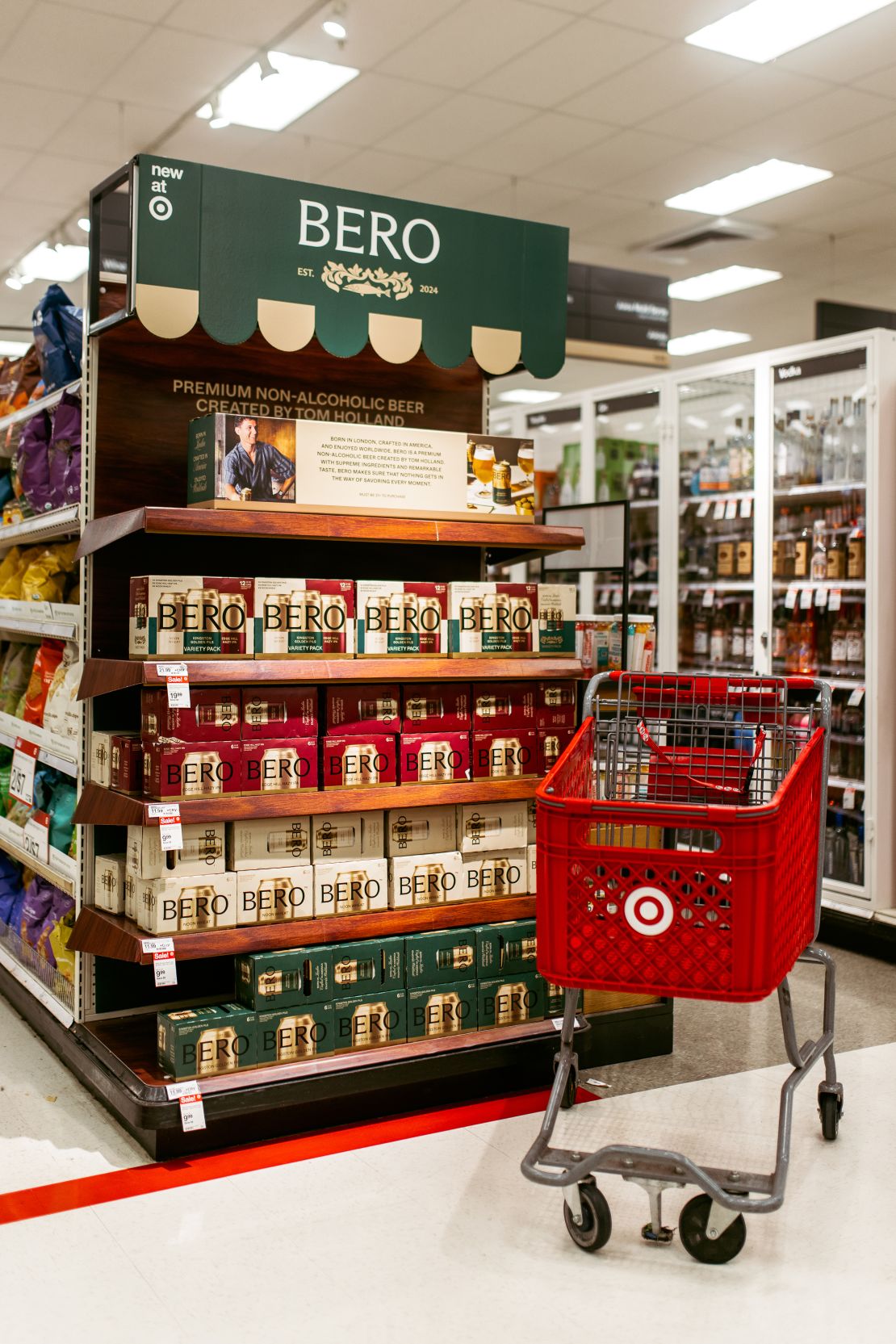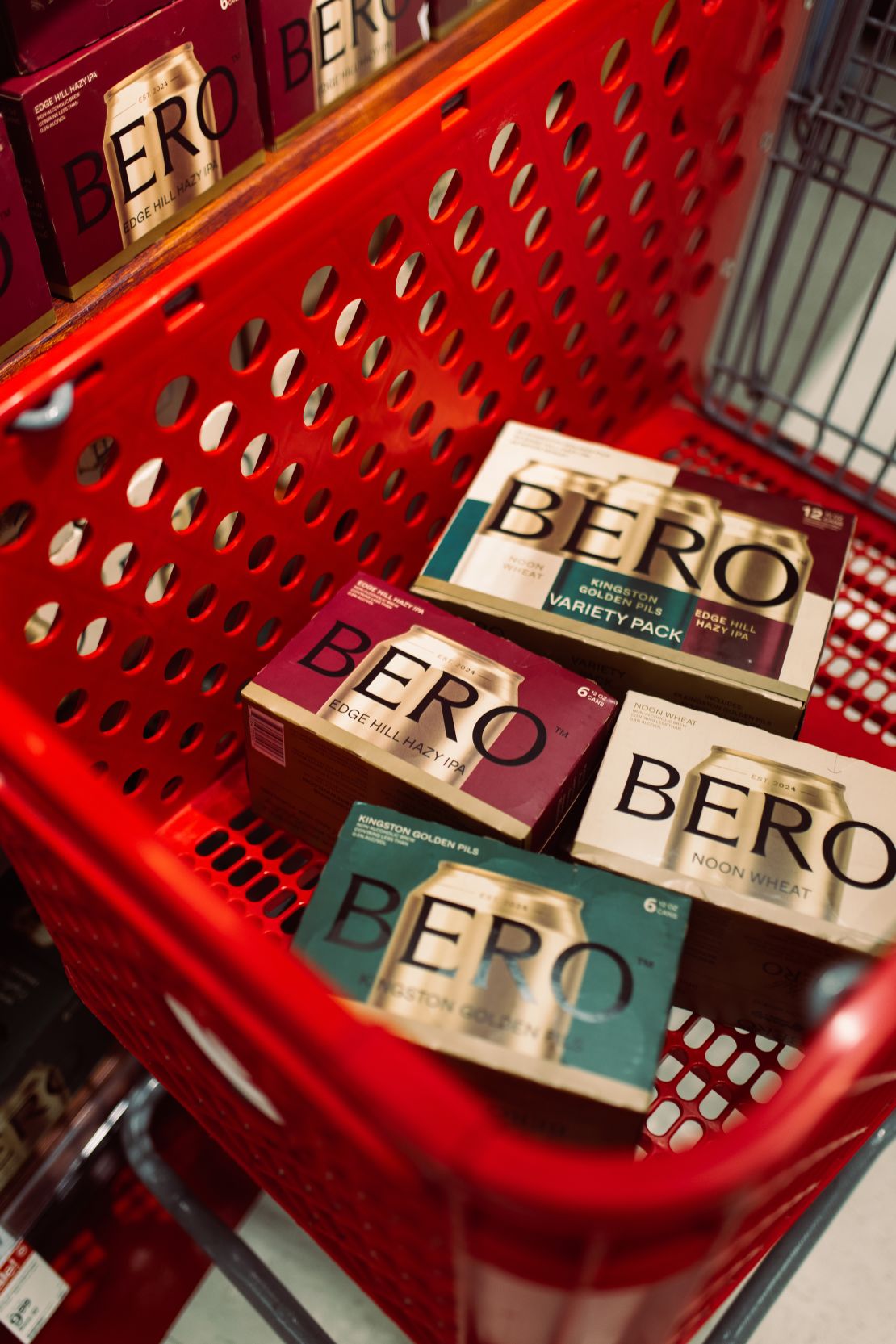After successfully cornering the spirits section, celebrities now are aiming for the non-alcoholic aisle, with Tom Holland among the first A-listers making perhaps the biggest deal yet.
Target announced Tuesday that Bero, Holland’s non-alcoholic beer brand, is coming to roughly 1,400 of its nearly 2,000 US stores this week, snagging a key display on an aisle endcap and giving further prominence to the growing sober-curious trend.
Sales of non-alcoholic beer, spirits and wine at retailers jumped 27% last year, making it an $818 million category, according to NIQ. Non-alcoholic beer, the largest category of the three, raked in nearly $700 million in sales for the 52-weeks ending on December 21 — growing 25% compared to the same period a year prior.
And the space is only forecasted to grow in light of trends shifting to more people either ditching or dialing back their drinking, especially younger customers. Last week, the US Surgeon General warned that alcohol is a “well-established, preventable cause of cancer” and suggested updated health warning labels on alcoholic beverages.
Holland recently spoke candidly about his struggle with sobriety and creating the non-alcoholic beer Bero, which debuted last October, to feel included in social situations where drinking can be rampant, especially in his home country of the United Kingdom.
Despite Holland’s star power, most recently with his revealing new photos for a Men’s Health cover story that set the internet on fire, the Target partnership solves a major grievance shared by his fans about the brand: It’s hard to find.
“Since our launch, the only complaint that anyone has had has been that they really want local availability that they can go to the store instead of a website,” John Herman, Bero CEO and cofounder, told CNN. “We think that we have a good consumer base already that if we tell the story of ‘Hey, now they’re available at Target!’ we’re going to be able to mobilize them.”

Target has been capitalizing on the non-alcoholic adult beverage trend for a few years already. In 2023, the chain partnered with Sèchey, an online retailer that sells alcohol-free spirits and wines, to add a selection of popular brands at 700 Targets.
Adding Bero is Target’s “next step in owning this category,” according to Nate Rosen, a consumer packaged goods expert. He said that Bero’s premium packaging will help the beer stand out against its competitors.
“The category has been pretty straightforward with Athletic Brewing doing most of the work getting consumers to understand what non-alcoholic beer can be, plus a couple of big brands like Heineken and Guinness,” Rosen, who writes the Express Checkout newsletter, told CNN. “But Bero’s positioning feels different: It’s more lifestyle-forward, which could help bring in people who might have overlooked non-alcoholic beer before.”
Beyond Target, Bero is sold on its website, select retailers like Sprouts Farmers Market and Total Wine and More and at every Soho House US outpost. Bero’s Herman revealed that the beer will soon be sold on Amazon, which will help grow the fledgling brand in a competitive space dominated by well-entrenched companies that have large distribution.

In 2024, Anheuser-Busch InBev was the biggest brewer of non-alcoholic beer, snagging 27% of sales in the category, according to exclusive data given to CNN from Fintech and the National Beer Wholesalers Association. Athletic Brewing is in second place (24.9% share of sales) and Heineken is in a close third at 23.5% share, per the data. (Bero sales weren’t available because it’s too new).
All three companies are expanding in the space, too: Anheuser-Busch is soon rolling out Michelob Ultra Zero, capitalizing on the success of the low-carb beer and amid Bud Light’s sustained difficulties; Athletic is regularly releasing new versions and Heineken 0.0 is expanding distribution this year to convenience stores and will soon be sold in 12-packs.
That’s a steep hill to climb, but Herman sees the space as an opportunity for Bero because it’s not an extension of an already existing beer and is crafting its own identity.
“A lot of them are lacking that distinct perspective of who is the consumer and what is our reason for being,” he said, pointing to Bero’s positioning as being a premium alternative to his competitors. “We think that that’s going to allow for us to play in a very different space and ultimately expand the pie of the category.”
Still, despite the excitement and growth of non-alcoholic options, it’s a small slice of overall booze sales: Those drinks currently account for just 0.7% of total alcohol sales at retailers, per NIQ’s analysis.









